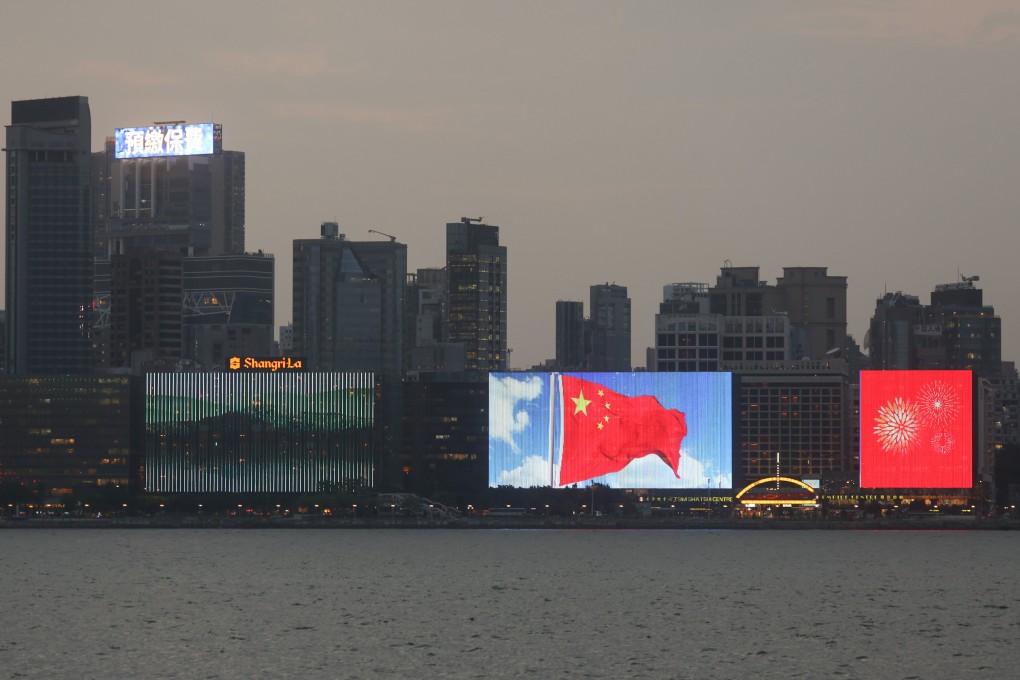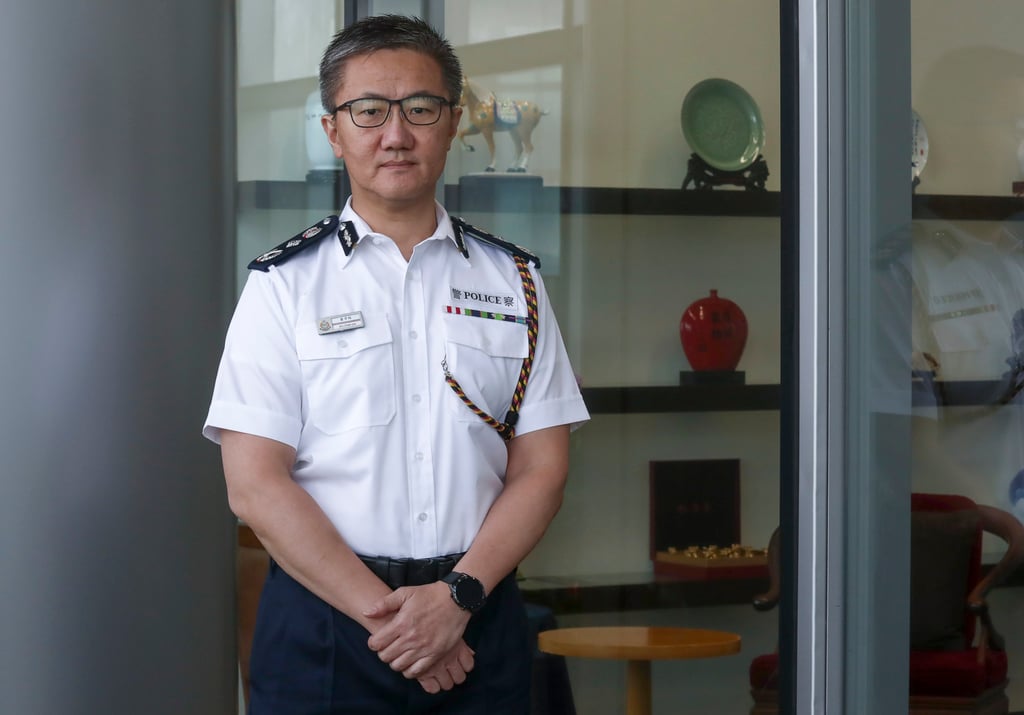Hong Kong police to deploy large number of officers on National Day next week, chief says
- Police Commissioner Raymond Siu also reveals counterterrorism hotline has received more than 6,300 messages since launch in June
- Force will monitor social media for potential threats in lead-up to October 1, even though terrorism risk remains at medium, he adds

Hong Kong police will deploy a large number of officers to ensure public safety on National Day next week, the head of the force has said, while revealing a counterterrorism hotline has received more than 6,300 messages since it launched in June.
Despite the number of tips, the risk of terrorism in the city remained stable, Police Commissioner Raymond Siu Chak-yee on Saturday said.
“Hong Kong’s terrorism risk is maintained at medium because so far we haven’t received any intelligence that Hong Kong is exposed to a terrorism risk,” he told a TV programme.
To ensure public safety, the force would deploy a large number of officers, including ones from the Special Tactical Squad, also known as “Raptors”, to watch out for any suspicious activities on the October 1 National Day holiday, he said.

“We will continue to stay on guard for any suspicious activities on the streets or online,” he said. “We need to keep a close eye on whether there are people inciting others on social media to conduct illegal or violent acts.”